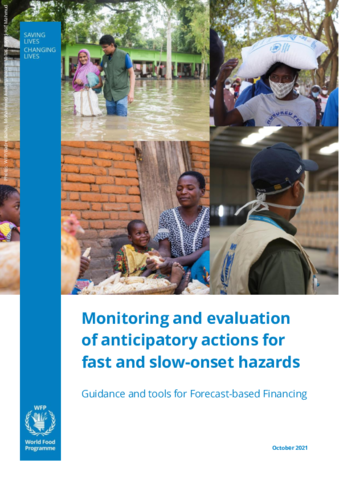
The forecast-based nature of an FbF programme and of Anticipatory Action (AA), the short lead times of fast-onset hazards and the complexity of drought contexts imply several particularities for M&E that are considered in this guide. Instead of aiming to be an exhaustive programme or project M&E manual – which would require repeating existing guidance available elsewhere – this document focuses on the particular M&E challenges posed by anticipatory action for slow and fast-onset hazards.
It does not prescribe a particular approach or method, but flags key issues, provides perspectives for consideration and points to useful resources and further reading to allow teams working on AA to make informed decisions about how to set up their M&E.
The examples and tools in this guide are built in a modular fashion so that country teams can adapt and use them in their programme settings. All content is based on practical experience from FbF programmes and built on existing organizational policy, guidance and M&E practice.
The primary audience are WFP M&E and Programme staff in country offices (COs), although the methods and tools compiled in this guide should be useful to anyone working on M&E of AA for both fast and slow-onset hazards.
